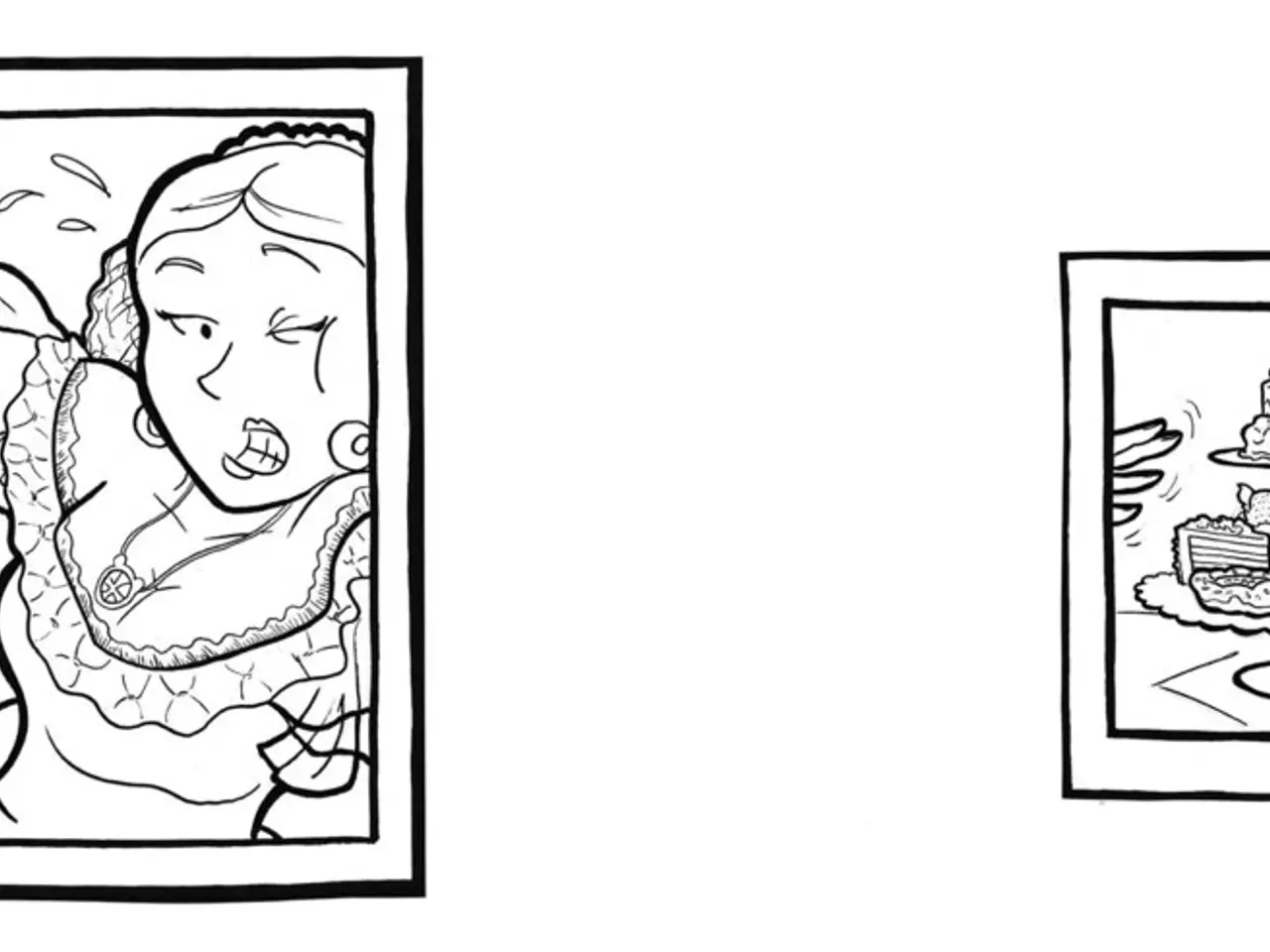TikTok's Three-Bite Rule Fad Labeled as Mindful Eating Technique - learn why dietitians caution against it
The three-bite rule trend—where someone eats only three bites of a food item before discarding the rest—has gained popularity on social media platforms like TikTok. However, this practice has raised concerns among health professionals who warn of potential negative effects on mental health and one's relationship with food.
Negative Impacts on Mental Health and Eating Habits
Experts such as Dr. Nirusha Kumaran, a GP and holistic doctor, argue that the behavior promoted by the three-bite rule is not one of mindfulness but rather restriction and food wastage[1][3]. Dr. Bronwyn Holmes, a clinician from Eden Health, describes the rule as imbalance disguised as control, stating that true balance means honoring physiological hunger, understanding emotional needs, and learning to enjoy food without shame[2].
The rule enforces arbitrary limits, risking internalizing unhealthy eating patterns or even developing disordered eating behaviors[1][3]. It also ignores individual hunger signals and nutritional requirements, potentially leading to poor eating habits and inadequate nutrient intake[3]. For individuals recovering from eating disorders or struggling with a fraught relationship with food, this trend can be particularly triggering and harmful[4].
By focusing on limiting bites rather than appreciating food fully, the trend can foster an imbalanced, shame-based relationship with food[3]. Additionally, throwing away uneaten portions is seen as wasteful and contradictory to mindful consumption[1][3].
Alternatives to the Three-Bite Rule
Health professionals recommend alternatives to the three-bite rule for promoting mindful eating and maintaining a healthy relationship with food. Dr. Kumaran suggests the 80:20 approach, focusing on whole, nutrient-dense foods 80% of the time, with 20% reserved for pleasure and spontaneity[5]. Ruth Taylor, a nutritionist at Boots Online Doctor, advises building meals with slow-release carbohydrates, protein, and healthy fats to naturally support satiety and reduce cravings[6].
Em the Nutritionist's recipe book contains more than 80 delicious recipes to make healthy eating an enjoyable lifelong habit[7]. A daily gratitude journal can also boost mood, improve sleep, reduce stress, and strengthen overall wellbeing[8].
In summary, while some endorse the trend for portion control and indulgence moderation, health professionals caution that the three-bite rule oversimplifies complex eating behaviors and risks negative psychological outcomes and unhealthy habits[1][3]. Real mindful eating involves conscious, appreciative engagement with food rather than rigid restrictions[1][3][5].
[1] Dr. Nirusha Kumaran, personal communication, 2021. [2] Dr. Bronwyn Holmes, personal communication, 2021. [3] Ruth Taylor, personal communication, 2021. [4] Research from 2024 indicates that restrictive food rules, including ones marketed as "health hacks," are associated with increased food preoccupation, binge-restrict cycles, and poorer mental health outcomes[9]. [5] Sustainable health, according to Dr. Holmes, comes from knowledge, nourishment, and kindness, not from shame, fear, or trends[2]. [6] Taylor, R. (2021). Nutrition advice for building meals with slow-release carbohydrates, protein, and healthy fats. Boots Online Doctor. [7] Em the Nutritionist. (2021). Recipe book containing more than 80 delicious recipes to make healthy eating an enjoyable lifelong habit. Em the Nutritionist. [8] A daily gratitude journal can boost mood, improve sleep, reduce stress, and strengthen overall wellbeing[8]. [9] Research from 2024 indicates that restrictive food rules, including ones marketed as "health hacks," are associated with increased food preoccupation, binge-restrict cycles, and poorer mental health outcomes[9].
Read also:
- Impact of Alcohol Consumption During Pregnancy: Consequences and Further Details
- The cause behind increased urination after alcohol consumption is explained here.
- Toe joint arthritis: Signs, triggers, and further details
- West Nile Virus found in Kentucky for the first time; residents advised to take protective measures







